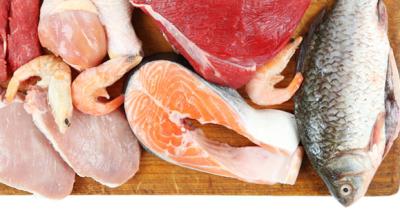MUMBAI, 05 March 2018 : CLFMA of India, the apex association representing India’s dynamic livestock sector reiterates the critical role of antibiotics and emphasizes the urgent need for in promoting awareness on judicious use.
“Antibiotics are used in animal husbandry for many decades globally and these are essential for maintaining the health, hygiene and welfare of the animals both in the industrialized and backyard scenarios” B Soundararajan, Chairman, CLFMA of India said.
Recently, concerns were raised on the use of antibiotics in livestock farming globally and also in India.
“WHO describes antibiotics as precious tools for the veterinarians for prevention, control and treatment of diseases in animals and also for promoting growth. When used responsibly and judiciously, antibiotics contribute enormously to produce sufficient quantities of safe, quality, nutritious and affordable food. Hence, there is no need for unnecessary scaremongering tactics used by some with vested interests and ostensible credibility. This is misleading the consumers through unscientific claims and half-truths” Soundararajan stressed.
CLFMA regularly participates in the meetings organized by the Government and continues to contributes to the dialogue. With demographic and economic transformation, Indian consumers increasingly seek better health through food. They are getting more demanding and their preferences are evolving much faster than ever before. CLFMA also contributes to the global discussions on the issue of antibiotics as a member of the task force on Antimicrobial Resistance (AMR) under International Feed Industry Federation (IFIF), which works together with organizations including FAO.
He further added “We are working closely with a wide array of stakeholders both nationally and internationally. While genuine concerns about misuse, overuse and subsequently, resistance issues are understandable, several myths, opinions and unfounded claims undermine the critical role of antibiotics in the broader context of food and nutrition security. Further, regulatory and policy decisions now a days, are increasingly getting influenced by public perception. Hence, besides busting myths, sharing correct information about the benefits of using antibiotics promoting awareness are the needs of the hour in India and globally”.
CLFMA acknowledges this is not just an issue of usage of antibiotics per se but one that has much larger implications in terms of animal productivity; costs of food production; incomes; profits; and ultimately livelihoods of the farming community. Besides promoting judicious use, suitable and affordable alternatives must be explored. Restricting the ability of veterinarians to control animal diseases will only result in reduced production and poor food safety and quality.
“Ultimately farmers will bear the brunt due to reduced production and consumers also will get impacted due to increase in food prices. The ultimate economic and social consequences on people’s health, nutrition and welfare when the country is experiencing “protein inflation” would be nothing short of a disaster. Hence, it is important to note that at least two hundred million Indians still cannot afford three square meals a day and not to push animal protein beyond their reach” Soundararajan added.
He concluded by saying “It’s the time for all those who are concerned about India’s food and nutritional security need to stand up and raise a unified voice against these scare-mongering tactics by those with vested interests. Further, policy makers and regulators must put their feet down firmly and decide to take a well-balanced, neutral and science-based view while evaluating any tools, or technologies including antibiotics and not bow down to the unscrupulous forces that have the only objective of disrupting the food industry without any scientific basis. We strongly urge that media must take a morally righteous stand and must verify the facts and truth before publishing any unfounded claims. Finally, scientists, researchers and other industry stakeholders must speak the language of the consumer and take steps to enhance the consumers’ understanding of how food is really produced and why they shouldn’t believe everything that is projected in media. It is a shared responsibility”.
Imnage: Rabobank




















